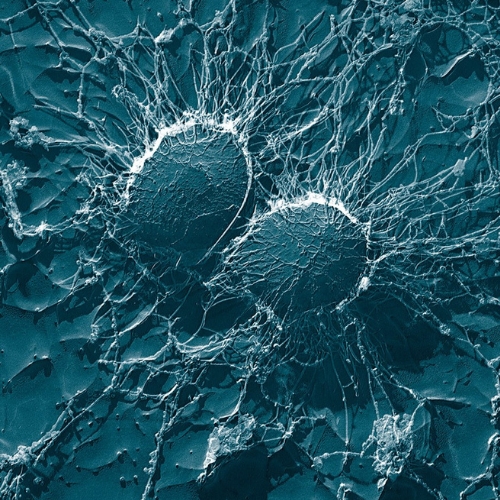Why do some people live beyond a hundred years with health intact, while others struggle decades earlier? For centuries, this question has lingered at the crossroads of science, medicine, and philosophy. Some point to genetics, others to diet or environment. But in recent years, researchers have turned their gaze inward—into the human gut—where trillions of microbes quietly shape the course of our lives. Within this unseen community, new discoveries are changing how we think about ageing and health.
The Longevity Village
One such discovery comes from Jiaoling, a small township in southern China celebrated for its unusually high number of centenarians. The village has long attracted scientists curious about its reputation for healthy ageing. By studying the residents’ microbiota, researchers uncovered patterns unlike those found in younger or even average elderly groups. The gut microbes of centenarians showed greater diversity and a higher concentration of beneficial species, setting them apart from other populations.
The Role of Gut Diversity
As people grow older, their gut ecosystems often shift in harmful ways. Diversity tends to decline, leaving space for opportunistic bacteria linked to disease. Yet, centenarians display the opposite trend. Their guts thrive with beneficial bacteria such as Lactobacillus, Akkermansia, and Christensenella. This microbial richness not only stabilises the gut environment but also contributes to resilience against age-related diseases. It seems that microbial diversity acts as a hidden pillar supporting longevity.
Discovery of a Key Strain
Among the bacteria enriched in centenarians, one strain stood out: Lactobacillus plantarum 124, or LP124. Unlike ordinary strains, LP124 produced a unique metabolite—mesaconic acid—that demonstrated remarkable effects in both laboratory and animal experiments. Researchers described mesaconic acid as an unexpected yet potent compound with anti-inflammatory and anti-ageing abilities, capable of altering the body’s biochemical pathways in meaningful ways.
Fighting Inflammation at Its Core
Inflammation is a silent companion of ageing. With time, the body’s immune system becomes less efficient, often creating a low-grade inflammatory state linked to chronic diseases. In experiments with ageing mice, mesaconic acid lowered the levels of pro-inflammatory molecules like IL-6 and TNF-α, while boosting IL-10, a protective anti-inflammatory factor. These changes were observed not only in the intestines but also in the liver and kidneys, suggesting systemic benefits beyond the gut.
Shielding Against Oxidative Stress
Inflammation and oxidative stress often march together. Left unchecked, free radicals damage cells, accelerate tissue decline, and shorten lifespan. Mesaconic acid and LP124 countered this damage by enhancing the activity of antioxidant enzymes, including superoxide dismutase and glutathione peroxidase. As a result, mice exposed to mesaconic acid had lower levels of damaging molecules and healthier organ tissues. These findings strengthen the idea that specific microbial metabolites can act as natural shields against oxidative harm.
Strengthening the Intestinal Barrier
The gut lining serves as a fortress between the body and the outside world. Ageing can weaken this barrier, allowing toxins to seep into circulation. Researchers observed that mesaconic acid helped restore structural proteins like occludin and claudin-1, reinforcing the intestinal wall. Mice treated with mesaconic acid showed fewer signs of toxin leakage and healthier intestinal tissues overall. This suggests that maintaining gut integrity could be a vital part of slowing the ageing process.
Serum Clues from Centenarians
The story of longevity also unfolded in the blood. Serum samples from centenarians revealed higher levels of protective metabolites such as lipoic acid, ascorbic acid derivatives, and glutamine. These molecules, known for their antioxidant roles, appeared in far greater abundance than in younger or elderly groups. Importantly, mesaconic acid, along with lysine and butyrate from LP124, seemed to contribute directly to this favorable biochemical profile, offering another layer of protection against age-related decline.
Microbes that Shape Health
By linking gut microbes with circulating metabolites, researchers built a clearer picture of how microbiota sustain health in centenarians. Beneficial bacteria correlated with higher levels of protective compounds and lower levels of harmful ones. These relationships suggested that the gut does not act in isolation but interacts with the entire body. Mesaconic acid, in particular, emerged as a bridge between microbial diversity and systemic health, making it a compelling target for future interventions.
A Microbial Blueprint for Longevity
The implications extend beyond one Chinese township. If probiotics like LP124 can encourage similar microbial patterns in other populations, it may be possible to reduce inflammation, improve metabolic balance, and prolong healthy years of life. Scientists envision therapies that harness mesaconic acid or other microbial metabolites to recreate the protective environment found in centenarian guts. This vision is not merely about extending lifespan but about improving its quality.
Lessons from the Gut
The gut’s role in ageing is no longer a speculative idea. The research from Jiaoling highlights how a diverse microbial community, paired with powerful metabolites, can tip the scales toward longevity. Mesaconic acid stands out as a natural compound with extraordinary promise, capable of calming inflammation, protecting tissues, and reinforcing barriers at the very core of human health. For a world facing a rapidly ageing population, these insights carry both scientific intrigue and practical hope.
The Road Ahead
Much work remains. Scientists must explore whether mesaconic acid can be safely applied in humans, and whether dietary or probiotic approaches can reproduce its effects. Still, the findings suggest that the key to ageing well may not lie in expensive treatments or genetic engineering but within the communities of microbes already living inside us. Perhaps the secret to longevity has been quietly thriving in our guts all along.
The study is published in the journal Npj Biofilms and Microbiomes. It was led by researchers from the Affiliated Hospital of Guangdong Pharmaceutical University.






